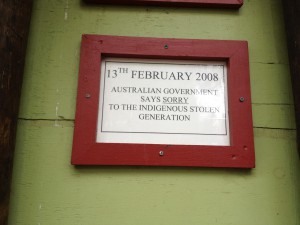Monday
Dharma TeachingsRelating with Grief as We Age
 COLUMN: Aging in Enlightened Society
COLUMN: Aging in Enlightened Society
by Acharya Emily Bower
Member of the Working Group on Aging for Shambhala
Grief is never simple, never clean or clear-cut. It defies description, it has many effects on our lives, it has many symptoms. To name a few of these: depression, suppressed immune system, disorientation, inability to function, self-pity, rage, blame, and terrible howling pain. And losing something or someone very important, of course, makes us feel afraid.
We might feel that we don’t know who we are — how to be, how to act – after the loss of a certain person or situation. And, most of us experience grief in stages or phases, the unseen rhythms of which can be unsettling.
In our culture we tend to talk about grief as something connected specifically to death. But as we get older, we know that sadness, regret, and grief are natural aspects of our being, and very familiar. The teaching of basic goodness says that everything in our experience is included in our essential nature, which is wholesome and worthy, beautifully human. Following that logic, grieving is natural. It’s an expression of healthiness, and appropriate to so many situations.
As we get older, we lose more and more friends to death, it’s true. But, we may also have emotional scars from the break-up of a significant relationship. Divorce, or unsettled disputes between family members, can be as devastating as the death of a loved one. Also, we might grieve the loss of respect, our loss of place in the world, our perceived loss of power and influence in the world as we age.
In my personal experience, I have grieved very keenly over missing close friends when feeling alone. I have grieved broken relationships and marriages. I feel grief when the children in my life get older and become tired of playing. I miss that connection and affection.
I have also carried the anger and sadness of having a chronic medical condition. I grieve over 9/11, having been in New York that morning. And, like everyone, I grieve over my youth in many ways: my strong memory, my youthful energy and resilience.
I’m not going to bore you further with my sad stories…. I mention them because I feel that grief is so personal that it’s important to look at ourselves and our lives and what we’ve been through, and to really acknowledge both the scars and the wisdom we carry.
Our culture, especially as it speeds up, doesn’t encourage us to pause for reflection, to process our pain and grief. It encourages us to look outward and always forward – and to be entertained and distracted. It’s actually hard to set up our life to avoid distraction and entertainment. And we always have access to ways of turning away from our feelings, stuffing down our feelings, numbing out from our feelings – exiting the present moment, “absenting” our physical and emotional experience.
Those of us who are going through an intense experience of sadness or grief usually feel that we’re moving at a different pace; we feel vulnerable, tender. And the pace of the world around us might be overwhelming — and that world might seem hard and unkind. So, I, (and maybe some of you…) have sometimes packed away my feelings of sadness, and “carried on.” I cope. Maintain the status quo. Get up and go to work.
However, I have discovered that when I don’t honor my feelings – when I don’t give myself time to really feel what’s happened, to be honest with myself about how hurt and alone I feel — then the energy can come up in a surge of sometimes uncontrollable emotion, never at the right time.
Among the stories of loss we all carry, some might not seem quite socially acceptable. In hospice-volunteer training, I learned the term, “complicated grief.” Feeling angry, guilty, unresolved, humiliated, or embarrassed about a loss or an unhappy ending (an affair; an act of violence; an unrequited love; a “failure,” such as being fired from a job; a dream or path we didn’t, or couldn’t, pursue) all comes under the heading of complicated grief.
 Obviously, burying these losses out of shame — or trying to contain and hide our grief – doesn’t support our Shambhala practice of celebrating being human. And, burying sadness because we don’t want to feel it right now doesn’t help our basic goodness to shine out. Basic goodness accommodates all. How can we relate with basic goodness when we feel there are aspects of ourselves that should not be seen or acknowledged?
Obviously, burying these losses out of shame — or trying to contain and hide our grief – doesn’t support our Shambhala practice of celebrating being human. And, burying sadness because we don’t want to feel it right now doesn’t help our basic goodness to shine out. Basic goodness accommodates all. How can we relate with basic goodness when we feel there are aspects of ourselves that should not be seen or acknowledged?
For me, packing away the grief and trying to ignore it hasn’t worked very well. I find that it’s more natural all around to allow time for giving in to the grief. Time for being sad, hiding out, crying. We might need to make time for this again and again.
Then, having acknowledged and borne witness to our own sorrow, resentment, and regrets, we have the ground for self-acceptance. And the ground from which to connect with others in empathy. We can make peace with our secret griefs, even make friends with them, make friends with our confusion. And, by acknowledging the truth of our situation, we grow.
In closing, I offer a practice suggestion: If you are grieving, take a light-handed attitude in your meditation practice. I was thinking about how much we are encouraged to meditate and accomplish practices in our community. I thought, “Wow, doing all these practices takes real commitment, that takes some kind of staying power, and a willingness to stick to a goal.” So, if you are goal-oriented, in the spirit of “being” instead of “doing,” I humbly invite you to try to release habitual tendencies toward accomplishment (of a state of mind; of accumulation of mantras) and see if you can let your practice be about just being with whatever arises, in order to support your grieving process.
Health note: If you are grieving now and feeling overwhelmed, talk to a bereavement specialist. If you don’t have a health and well-being contact at your Center, call a local hospice or hospital chaplain’s office and ask the chaplain for a list of resources. There are many excellent books, support groups, and other resources for grief and loss, from many different perspectives and traditions. It might be hard to know where to turn without some guidance, so ask for help.
 ~~
~~
Acharya Emily Bower started practicing in the Shambhala community in 1987, in Berkeley, CA. She has been a professional editor for 25 years. In addition to traveling and teaching in the glorious Shambhala mandala, she works as a book editor and publishing consultant. She has recently married and moved to Los Angeles.
To read more articles in this Column, please click here.





Nov 23, 2013
Reply
Dear Acharya ,
I have recently found the Shambhala Center in NYC.I am learning how to mediate.I have been working on healing the wounded child within for many years and Shambhala has given me the opportunity of receiving
the gift of feeling goodness within that has resulted in a heart that is beginning to open to give love
and compassion.I am 75 and the grieving of the loss of my childhood continues to be the
major focus of my recovery process.I have been back and forth experiencing the feelings of the four stages of grief (denial,anger,sadness,acceptance). I am extremely grateful to
have been able to minimize the negative survival emotions of: not taking responsibility for
my actions, misusing of anger, being paralyzed by fear and feeling shameful with acceptance
and filling the open space with loving kindness.
Your article was another gift from Shambhala. I am just at the beginning of my grieving lifetime journey.
I greatly appreciate your contribution to my healing.
Any help you can give me on my journey will give me the tools I need to give empathy and compassion
to those suffering wounded adult children
Much love,
David Coffey.
Jun 27, 2013
Reply
Thank you Emily,
Well said. May I ask your permission to re-publish it in my local weekly paper? I think it will benefit.
Feb 27, 2013
Reply
Thank you for this important article, Emily. I am a grief counselor in private practice as well as for SolAmor Hospice in Denver. I’d like to pick up on one point — you mention depression as a “normal” grief reaction. As a psychotherapist, I know that there is a big difference between the deep sadness of grief and depression. In grief, our energy is directed outward to what we have lost and it is an opportunity to experience our genuine heart of sadness and our humanity. In depression, however, our energy is directed inward against ourselves, in self-blame, self-hatred, etc. This is not normal grief.
If any of you find yourselves turning your feelings of grief against yourself, it is important to seek out a qualified grief counselor or therapist. In addition, be kind to yourself. As meditators, you have an important skill — you are aware when thoughts arise. A skilled therapist can help you see that those negative self beliefs are not real.
In the precious dharma,
Beth Patterson, MA, LPC
[email protected]
Feb 26, 2013
Reply
Thank you for this article Emily, it is exactly what I needed to know right now. My deepest gratitude to you for sharing this wisdom.
Feb 26, 2013
Reply
Emily,
Would you be so kind as to provide a few book suggestions. I’ve long been interested in hospice and, within my own practice, have needed to simply sit with my humanity, so that would be useful. Thank you for this illuminating and tender offering.
Kevin